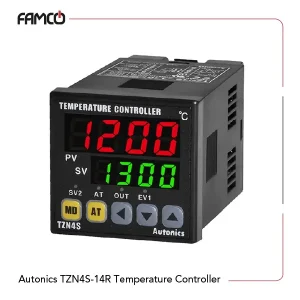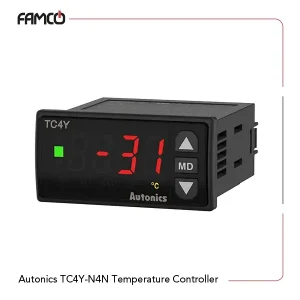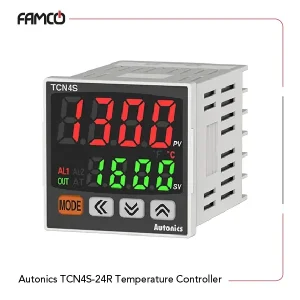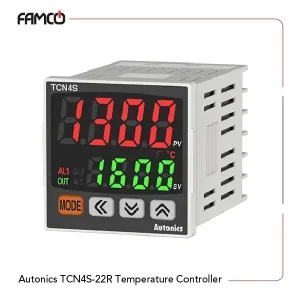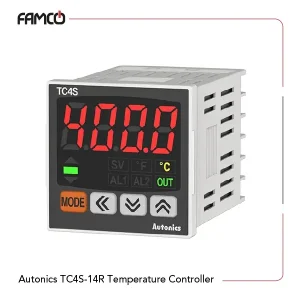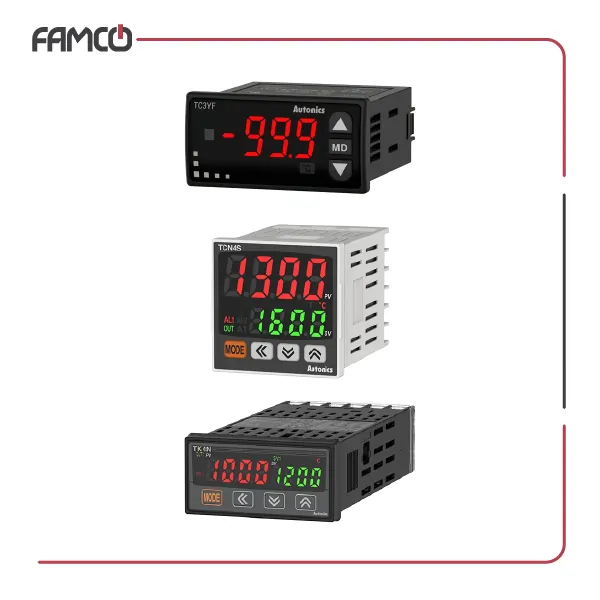Autonics is a leader in industrial automation and control solutions, offering precise and high-quality temperature controllers that cater to a wide range of industries. These devices ensure accurate temperature regulation in processes, safeguarding product quality and enhancing efficiency. With numerous models to choose from, Autonics temperature controllers provide effective solutions for both simple and complex temperature management needs.
Models of Autonics Temperature Controllers
Autonics offers a variety of temperature controller models, each designed to meet specific application requirements. The TC Series is one of the most popular, featuring compact designs and multiple control modes such as PID, ON/OFF, and self-tuning. The TK Series stands out for its multi-functional capabilities, providing multi-input options that can handle different sensor types like thermocouples and RTDs.
For more complex and high-precision applications, the TZN/TZ Series controllers offer advanced features such as multi-channel control, programmable outputs, and communication interfaces like RS485 for remote control and monitoring. Autonics also offers the TX Series, which combines ease of use with advanced features like high-speed sampling and detailed output control, ideal for applications requiring precise temperature adjustments.
Advantages of Autonics Temperature Controllers
One of the main strengths of Autonics temperature controllers is their precision control. Whether in simple or complex applications, these devices ensure accurate temperature management, preventing fluctuations that could affect the quality of materials or processes. With intuitive user interfaces, these controllers are easy to program and set up, reducing the learning curve for operators. Autonics temperature controllers also come with multiple control options. The availability of PID control allows for smooth, precise temperature adjustments by automatically calculating the best output to maintain a stable environment.
Additionally, ON/OFF control provides a simpler approach for less critical applications. The ability to handle various sensor inputs like thermocouples and RTDs ensures flexibility in matching the controller to different system needs. Energy efficiency is another key benefit. By maintaining accurate temperature levels, these controllers help reduce energy consumption, cutting operational costs in industries like HVAC, manufacturing, and food processing.
Autonics Temperature Controller Applications
Autonics temperature controllers are widely used across multiple industries. In industrial manufacturing, they play a critical role in managing temperatures for processes such as plastic molding, metal treatment, and glass production, ensuring materials are treated at optimal temperatures for the best results. In the HVAC industry, Autonics controllers are essential for maintaining consistent climate conditions in systems that regulate heating, ventilation, and cooling in both industrial and commercial buildings.
Food processing plants rely on these controllers for tasks such as baking, freezing, or maintaining product safety, where temperature precision directly impacts product quality. Other applications include laboratories and research facilities, where Autonics temperature controllers are employed to ensure precise temperature control during experiments, testing, or the production of sensitive materials. They are also found in packaging industries, particularly in processes where heat sealing or thermal management is involved.
Autonics Temperature Controller Price
Pricing for Autonics temperature controllers varies depending on the model and its features.
Autonics temperature controllers are valuable tools in ensuring accurate temperature regulation across a wide range of industries. With numerous models, customizable control options, and features designed for high precision and ease of use, these controllers offer effective solutions for maintaining optimal temperature conditions.
Competitive pricing ensures that businesses of all sizes can find a model that fits their specific needs, whether for basic temperature control or more advanced, multi-functional applications.

